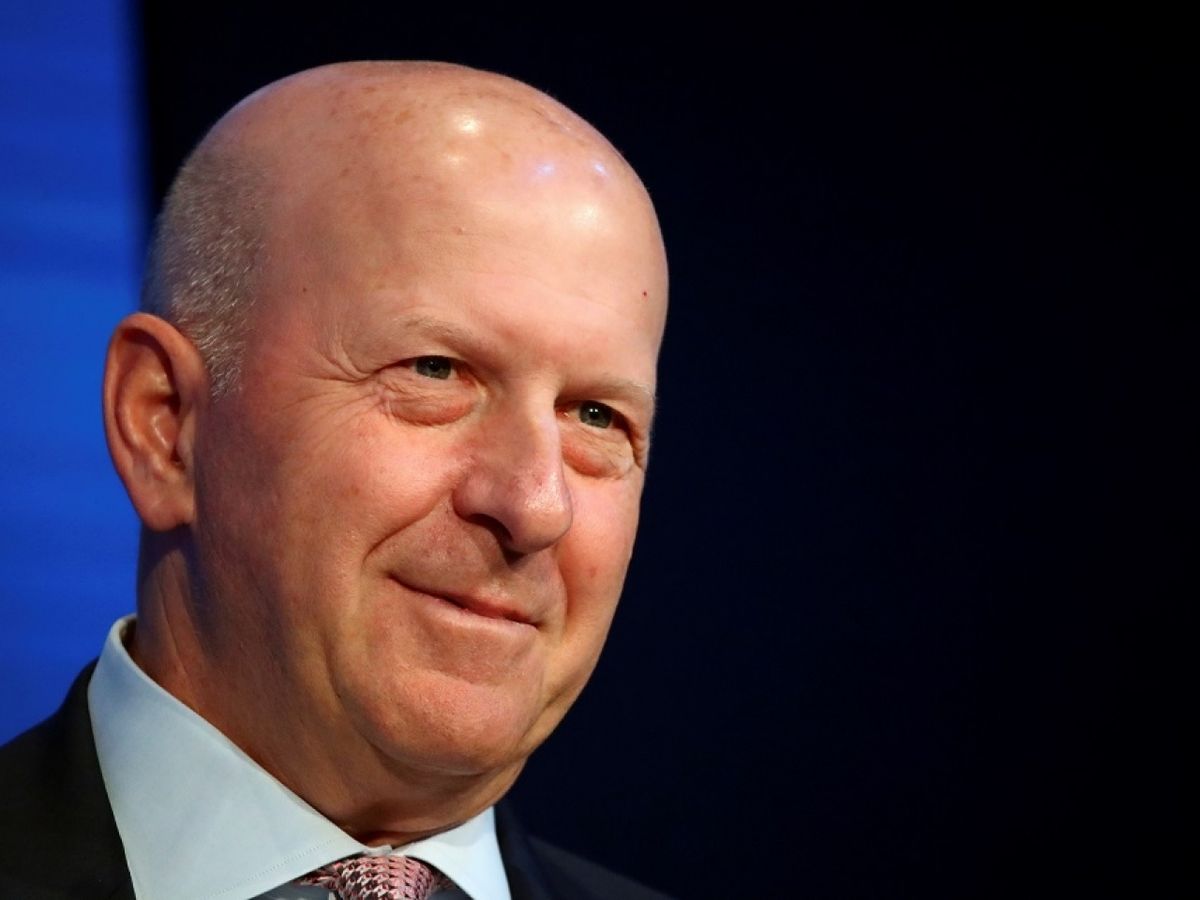Who is David Solomon?

A few minutes every morning is all you need.
Stay up to date on the world's Headlines and Human Stories. It's fun, it's factual, it's fluff-free.
Solomon recently said that remote work has a potentially negative impact on businesses, calling it “an aberration that we’re going to correct as soon as possible."
David Solomon has only recently begun his tenure as the chief executive officer of Goldman Sachs Group, Inc., but recent headlines regarding his extended vacations – after Solomon criticized remote work – have brought the CEO to the public’s attention.
Solomon is CEO of one of the largest investment banks in the world and has always taken pride in his unconventional and down-to-earth style. According to reports, Solomon continues to jet set around the world, releasing singles under the name D.J. D-Sol and doing yoga with his adult daughter.
Early history and education
Born in 1962 in Hartsdale, New York, David Solomon attended Edgemont Junior-Senior High School while also serving as a camp counselor in New Hampshire during the Summer. After graduating from Hamilton College with a degree in political science, Solomon went on to join Irving Trust Company.
Irving Trust was an investment firm that existed from 1851 until 1988 when it was acquired by Bank of New York, known now as The Bank of New York Mellon Corporation.
In 1986, prior to the acquisition of Irving Trust, Solomon transitioned to Drexel Burnham Lambert Inc. after spending one year at the Irving Trust. In one of his podcasts, Solomon noted that his time at Irving Trust was like “graduate school at the bank.”
Drexel Burnham and Bear Stearns
Drexel Burnham was notoriously involved in trading high-yield junk bonds – bonds that have a higher chance of default but offer higher yields, which eventually led to the firm’s downfall.
In an article by Vanity Fair, Solomon recalled how his time at Drexel Burnham offered him an incredible opportunity to succeed at the highest level.
“If you were good and took the opportunities you were given, you could excel incredibly quickly,” Solomon said.
While Solomon stated that he learned a great deal at Drexel Burnham, his time at the company was cut short due to building allegations and scandals. By 1990, the company was found guilty of abusing junk bonds and insider trading, which led to a fine of US$650 million and the company declaring bankruptcy.
Following Drexel Burnham, Solomon applied the knowledge and experience he learned by joining Bear Stearns Companies, Inc. in 1991 as the managing director for high-yield bonds. Within four years, he was named as the co-head investor of Bear Stearns. Solomon’s decision to join Goldman Sachs in 1999 came as a shock to many at Bear Stearns as he was considered to be on track for a leadership position at the company.
Other than his eventual ascension to CEO of Goldman Sachs, his decision to leave Bear Stearns for Goldman Sachs served as beneficial as Bear Stearns declared bankruptcy in 2008 and is now defunct.
Rise in Goldman Sachs
While at Goldman Sachs, Solomon continued down a path of success as he rose through the ranks of the company.
Over the next several years, mentored by then Co-President Jon Winkelried, Solomon advanced in the industry as the head of Goldman’s financing businesses. From there Solomon served as co-head of investment banking and eventually as a co-chief operating officer alongside Harvey Schwartz.
Many considered Schwartz to be the next successor of the company after Lloyd Blankfein’s eventual retirement but, when Blankfein stepped down as CEO in 2018, the company was left in the hands of David Solomon.
Since becoming CEO of Goldman Sachs, Solomon has implemented some progressive changes. In 2020, Solomon stated that he would not allow a company to go public under his firm if it did not have diverse representation on its board – representation that included women and people of color.
Solomon noted that companies that had a woman on the board tended to perform better than those without. “From a governance perspective, diversity on boards is a very, very important issue. We have been very, very focused on it. So we’re trying to find ways to encourage that,” Solomon said.
Recent criticisms
Solomon recently said that remote work has a potentially negative impact on businesses, calling it “an aberration that we’re going to correct as soon as possible." Given the nature of the work environment and how he learned his trade, Solomon believes that investing needs to be learned in the office.
His stated biggest concern is that upcoming graduates looking to intern at Goldman Sachs don’t participate in the learning process remotely.
Not only has Solomon been vocal about his view on remote work – a view shared by JPMorgan Chase Co. CEO Jaime Dimon – but Solomon has also recently come under fire for using the company’s private jet to take vacations for seven total weekends over the course of January and February of this year.
Jake Siewert, a spokesperson for the company, assured Bloomberg that Solomon worked during his weekends away.
“When he’s away for a weekend, David continues to work, pays for his travel, follows Covid protocols and is back in the office first thing on a Monday morning.”
Have a tip or story? Get in touch with our reporters at tips@themilsource.com




Comments ()